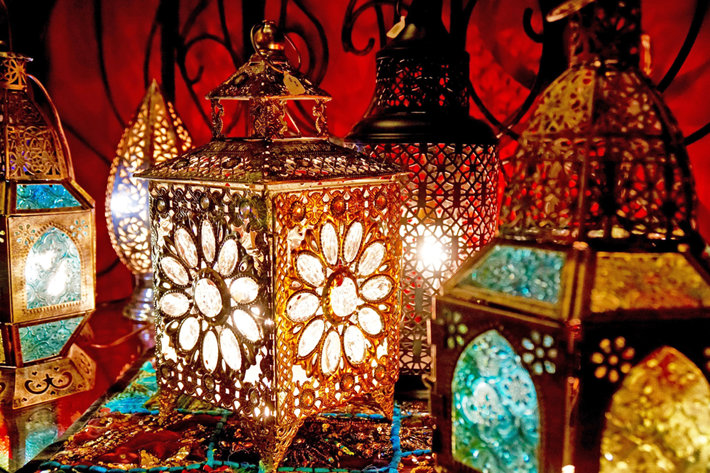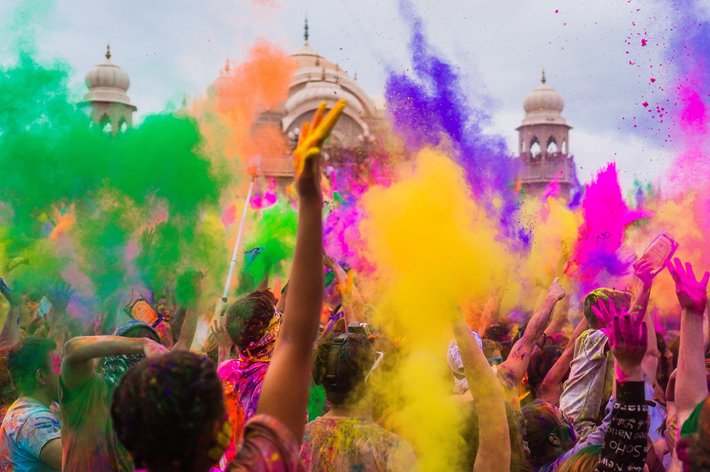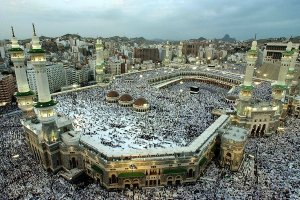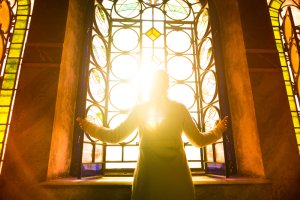In the Moroccan town of Meknes, a man dressed in a traditional robe and slippers walks the silent predawn streets. He raises a long-stemmed single-bell horn to his lips and, as his forefathers have done for centuries, plays an ancient call, rousing the community for prayers and the final meal before the daily fast of Ramadan.

For one month, Muslims fast each day from dawn to sunset, commemorating God’s revelation of the opening verses of the Quran, Islam’s sacred text, to Muhammed. Horn players, or nafar, are most often well-known and respected in the neighborhood, as are the tabbal—drummers—who also play their part, awakening the community for another day of the holy month. The tabbal and nafar have been part of the Moroccan identity for many generations. Modern technology, loudspeakers, and recordings have not replaced them, nor will they. The tradition of the drummer and the horn player making their rounds on foot, insistently calling the faithful to prayer, has left an indelible stamp on the heritage of Moroccan Islam, and in other Arab countries, including Syria, the Emirates, Egypt, Algeria and Tunisia.
Across the Mediterranean, 4,000 miles away, the little town of Bessières in southern France prepares for another spring holy day—Easter—in its own way. The community gathers 15,000 eggs, not for hiding or coloring but for a grand culinary celebration. The eggs are cracked open and whipped in pots, then following a recipe dating back generations, volunteers dressed in yellow add two pounds of salt, a pound of pepper and a bucket of herbs, then whip it all up in massive pots. Another team, wearing tall chef's hats, pours a dozen gallons of duck fat into the world's largest frying pan—13 feet wide, weighing over 2,000 pounds and with a handle fashioned from a telephone pole. Then, with huge paddles made of wood—more suitable to canoes than cuisine—they whip up a prodigiously Brobdingnagian omelet. The foodie’s delight is made in public, in the center of town, with great pomp, music, children’s egg hunts and a parade. An official taster gets the first mouthful and determines whether the dish needs a tad more salt or a skosh more pepper.
The tradition has survived inflation, avian flu, and allergies. If you’re in town next Easter Monday, be sure to get your portion. The omelet is free to all and, in the best tradition, is served with a generous helping of French bread.
Meanwhile, if you had walked into the Rainbow Terrace Adult Day Healthcare Center in Columbia, Maryland, on March 25, you would likely have been pelted with colored powder. Yes, you can call it a food fight, but there’s nothing malevolent about it. March 25 was this year’s Holi, the Hindu festival of colors, celebrating the beginning of spring and the victory of good over evil. Held at the end of the final full moon day of the lunar month, Holi is based on the Hindu legend of Holika, a female demon who tries to kill her nephew Prahlad because he worships the Hindu god Vishnu. But Prahlad miraculously survives the burning fire even as the evil Holika herself perishes in the flames.
At the daycare center, some three dozen seniors of Indian descent celebrate Holi. Dressed in traditional Indian garb, the group begins their mischief at 9:30 a.m., throwing colored powder at each other and anyone—attendants, visitors, unsuspecting guests—within arm’s reach. After an hour of pelting (which includes smearing each other’s faces), the group—some using canes, others walkers—board buses bound for the nearby Shri Mangal Mandir Temple—a Hindu place of worship. There, they remove their shoes and participate in Garba, an Indian folk dance. Moving in a circle while clapping their hands, they chant and pray.
Octogenarian Bhikhalal Popat, who came to the U.S. 22 years ago, participates in Holi every year. Ultimately, he says, what you believe and what faith you profess don’t matter. The important thing is to believe something. Without faith, he says, people are “nowhere.”
“We are all family,” Popat says. “God is in everyone’s heart.”
That would likely be a concept that both the Easter omelet celebrants of Bessières and the Moroccan observers of Ramadan could get behind in this season of rebirth and joy.
From its beginnings, the Church of Scientology has recognized that freedom of religion is a fundamental human right. In a world where conflicts are often traceable to intolerance of others’ religious beliefs and practices, the Church has, for more than 70 years, made the preservation of religious liberty an overriding concern.
The Church publishes this blog to help create a better understanding of the freedom of religion and belief and provide news on religious freedom and issues affecting this freedom around the world.
The Founder of the Scientology religion is L. Ron Hubbard and Mr. David Miscavige is the religion’s ecclesiastical leader.
For more information, visit the Scientology website or Scientology Network.



